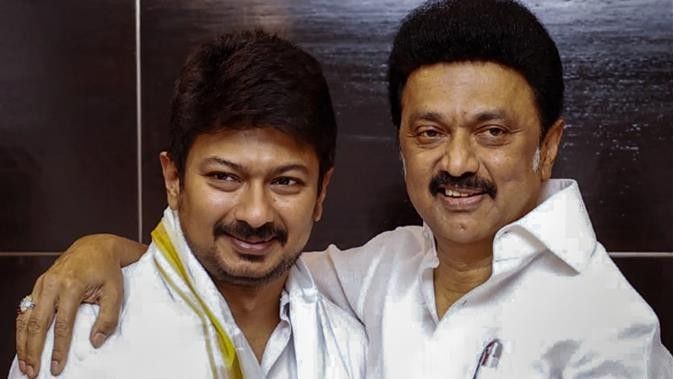
The induction of Udayanidhi Stalin as deputy chief minister of Tamil Nadu is clearly aimed at projecting a young leadership for the 2026 electoral battle in the state which promises to be a high stakes one. It is also a signal by Dravida Munnetra Kazhagam supremo M K Stalin that the line of succession in the party has been chalked out. Udayanidhi’s meteoric rise in a matter of a few years is in sharp contrast to Stalin’s own gradual elevation in the party starting at the grassroots and having to wait many years to be named his illustrious father M Karunanidhi’s heir apparent, fighting a succession battle with his brother M K Alagiri in the process. In a deft balancing act, even as the Opposition BJP and AIADMK have accused Stalin of perpetuating dynastic politics, the chief minister has ensured that all the senior ministers in his Cabinet are assuaged by retaining their portfolios, handing one of his own portfolios, the department of Planning and Development, to Udayanidhi in addition to the Department of Youth Welfare and Sports Development that he already holds. With the BJP projecting K Annamalai as its face, the DMK is aware of the necessity of a youthful campaign for the 2026 Assembly polls. Udayanidhi proved his calibre in 2021 running an energetic campaign. Despite the controversies that have dogged him such as the Sanatana dharma row, Stalin Junior has stuck to his guns. His brick in hand campaign mocking the BJP dispensation at the Centre and by association the AIADMK for the failure to build an AIIMS in Madurai has proved to be a big hit.
M K Stalin has chosen to ignore the taunt of dynastic politics that the BJP is so fond of throwing at him. One reason may be that he is plagued by health problems and wants the succession issue stitched up well in time. With the re-induction of Senthil Balaji, who has just been released on bail by the Supreme Court after being jailed in an ED case, Stalin has hinted that he means business. Balaji, who belongs to the Gounder community, wields enormous influence in the western region of the state, hitherto an AIADMK stronghold. By the induction of Dalit minister Dr Govi Chezhiyan, making him the fourth Dalit minister in Stalin’s council of ministers, the DMK chief clearly wants to send out a signal that his is not a party of only OBCs as it is often projected to be.
Whatever the compulsions for elevating Udayanidhi, the fact is most regional parties in India are family-run units and the DMK despite its stated aim of egalitarianism and shunning casteism, has to fall back on family for its survival. The same goes for the Samajwadi Party, NCP, TDP, RJD, National Conference, PDP, Uddhav Sena or BRS. The Indian National Congress of course is the biggest example of a family organisation. This is against the very principle of democracy but it has served politics well in India, mostly because the masses are yet to get over their feudal mindset. After all why fix something when it ain’t broken?